
SOFTBILLS
A GOOD description of the spotless starling is that it is closely similar to the common starling, but marginally larger (21-23cm in length, 70-100g in weight), with darker, oilylooking black plumage, glossed slightly purple or green in a bright light. It is entirely spotless in spring and summer, and has only very small spots in winter, with pale tips to the outer feathers.
The spotless starling also differs in having longer throat feathers, twice the size of the common starling’s. This forms a loose, shaggy beard which is obvious when the pair start to sing.
The legs are a pinkish colour. In summer, the bill is yellow with a base blueish in males and pinkish in females. In winter it is much duller and often looks black. Juvenile birds look like the common starling but are browner all over. Confusion in winter with the common starling is quite normal where they overlap.
Like the common starling, it walks rather than hops, and has a strong direct flight, looking triangular-winged and short-tailed. It is noisy and a great mimic of other birds. Its song is like a common starling’s but louder.
The preferred habitat is open country, from farmland to olive groves and orchards; human habitation is quite common. Most are found in fields following cattle and other livestock.
Diese Geschichte stammt aus der September 18, 2019-Ausgabe von Cage & Aviary Birds.
Starten Sie Ihre 7-tägige kostenlose Testversion von Magzter GOLD, um auf Tausende kuratierte Premium-Storys sowie über 8.000 Zeitschriften und Zeitungen zuzugreifen.
Bereits Abonnent ? Anmelden
Diese Geschichte stammt aus der September 18, 2019-Ausgabe von Cage & Aviary Birds.
Starten Sie Ihre 7-tägige kostenlose Testversion von Magzter GOLD, um auf Tausende kuratierte Premium-Storys sowie über 8.000 Zeitschriften und Zeitungen zuzugreifen.
Bereits Abonnent? Anmelden
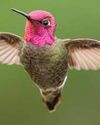
The World's Best-Known Hummingbird?
Intensively studied, the gem-like Anna’s hummingbird is a welcome visitor to the gardens of America’s most populous state: California. Bill Naylor investigates its life history
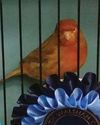
The charm of the English Cinnamon
Despite its long and complicated history, the true Cinnamon canary is still with us – in the hands of a tiny group of breeders. DONALD SKINNER-REID reckons it deserves wider appreciation
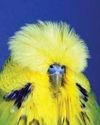
Spangles: a personal overview
FRED WRIGHT relates a budgie story of over-exploitation, consequent problems and abundant potential for the future

New converts to old breeds
Old and rare canaries have a reputation for adding fresh interest and challenge to the hobby. PETE HOOK and NICK JOY agree, and explain the birds’ charm to Dave Brown

Themed aviaries are a hit with the public at annual Stafford show
DECORATIVE AVIARY DISPLAYS from a CBS and an online bird keeping advice group were voted in the top three by visitors for the inaugural Stafford Aviary Competition.
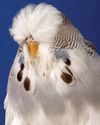
Pieds with potential
More than just a lesser variety, the dominant pied will introduce challenge and change into most studs, reckons CLIVE WAKEMAN. Here he discusses pairings to try and others to avoid

Club News
Welcome to the club and show pages – the bit that’s all about you Results: convention, specialist & rare and Breeder of the Year
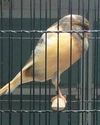
Canaries Month by Month:
With Christmas around the corner, BRIAN KEENAN is well into his winter programme, and reckons he might deserve a nice outcross
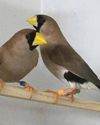
Smart Choice, Docile Nature
Dave Brown welcomes the masked grassfinch to his birdroom and shares advice on this lovely Australian species
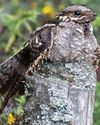
The truth about the ‘flying toad'
Odd local names and weird superstitions can’t hide the beauty and elegance of the nightjar, a species that has made a fascinating subject in a few zoo collections, reveals BILL NAYLOR